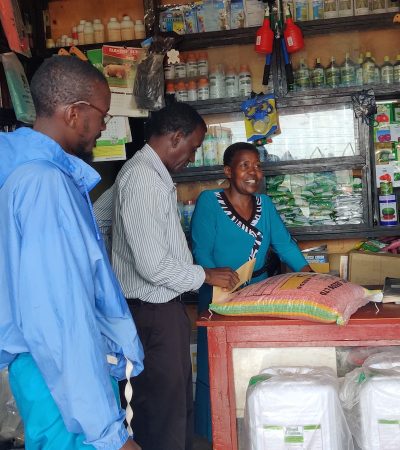
Harnessing Innovation in Ghana to Reduce Food Loss and Waste
Josephine Yeboah and her husband started a poultry farm with a clear vision: Be a leading producer of poultry eggs in Ghana. But initially, pests ravaged the corn feed for the Yeboahs’ animals, contributing to nearly 30 percent of lost food. In 2019, the Yeboahs began using ZeroFly® Hermetic Storage bags to store their feed. The bags were developed by the Feed the Future Innovation Lab for the Reduction of Post-Harvest Loss (PHLIL) in collaboration with private sector partner Vestergaard.
Read More

